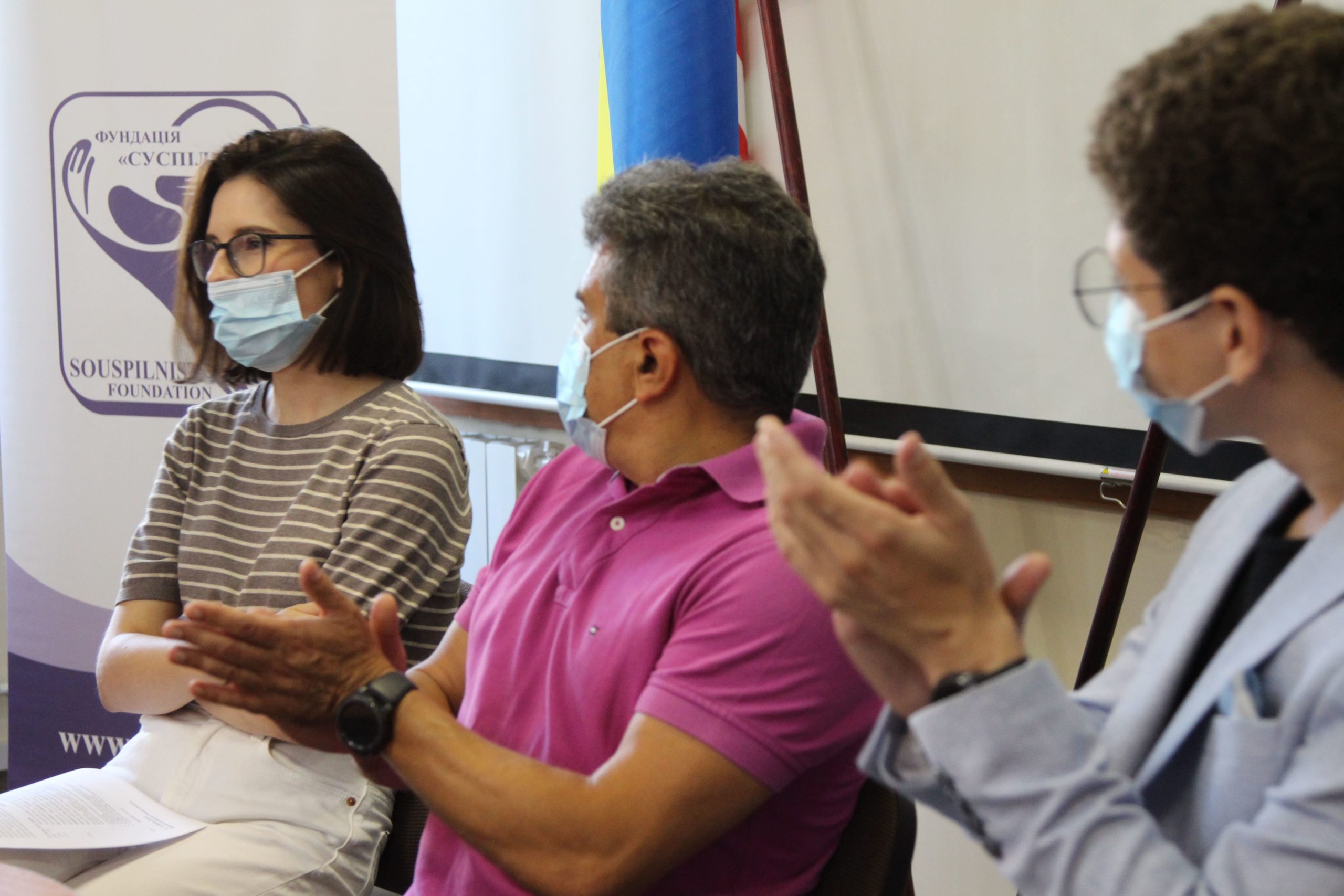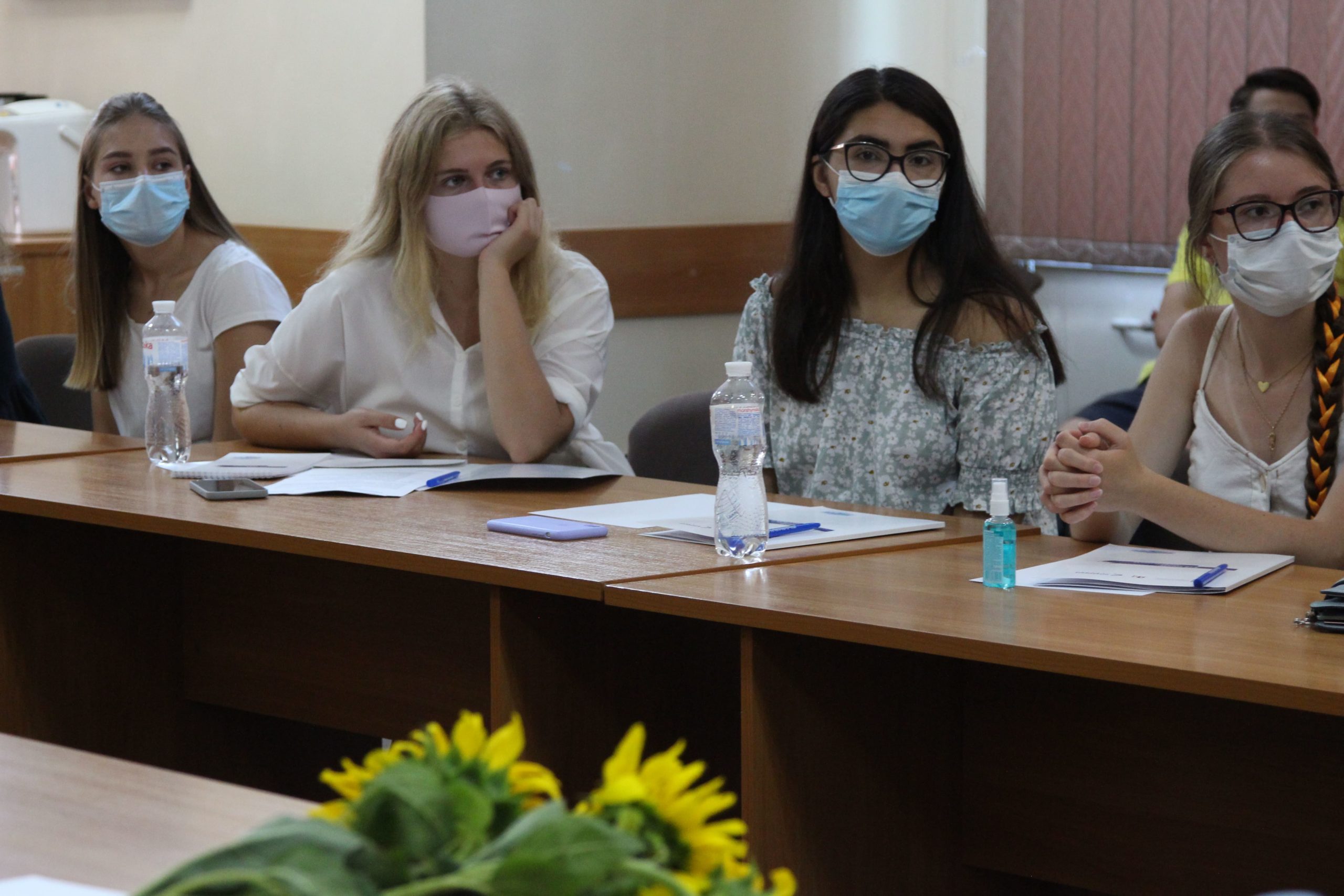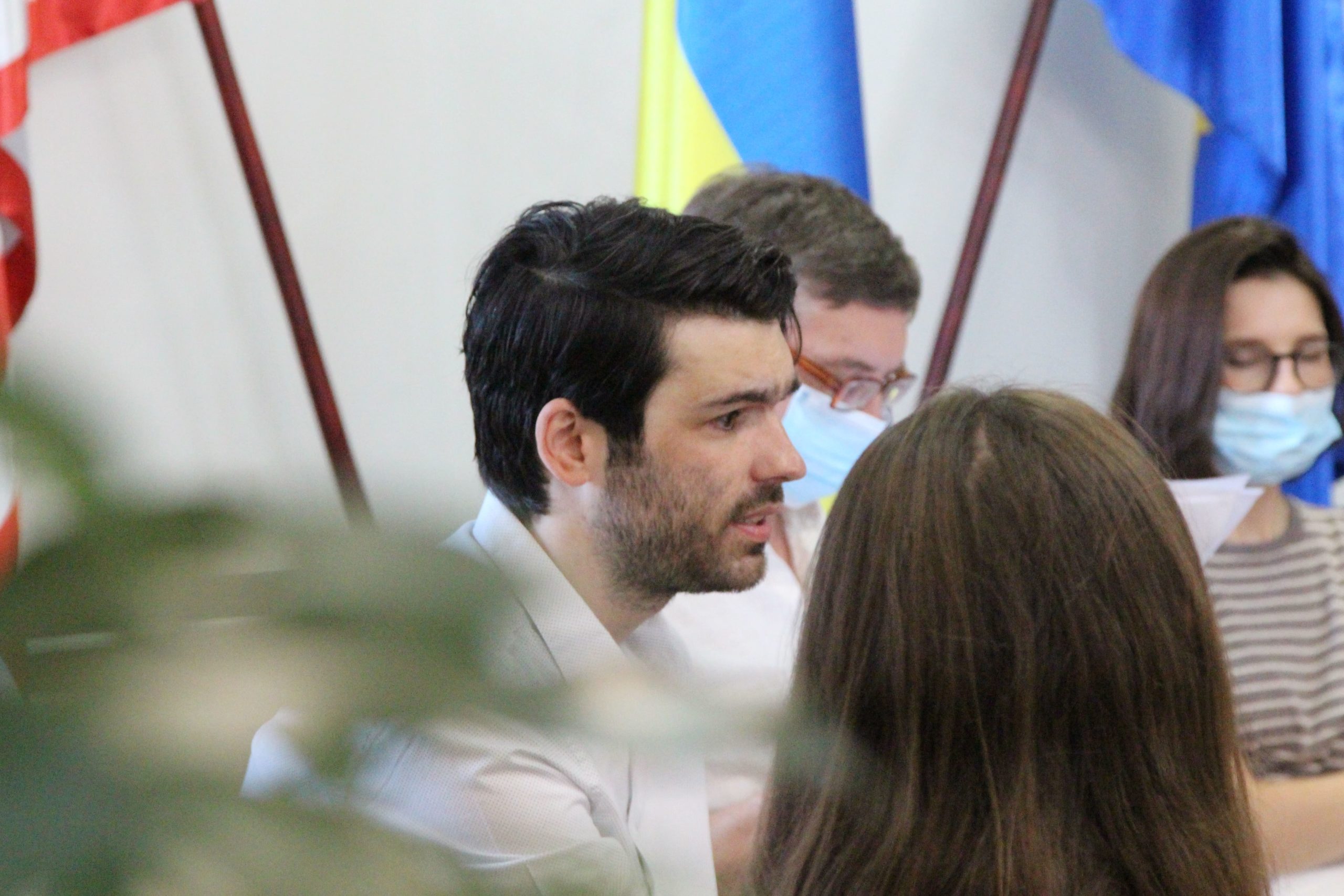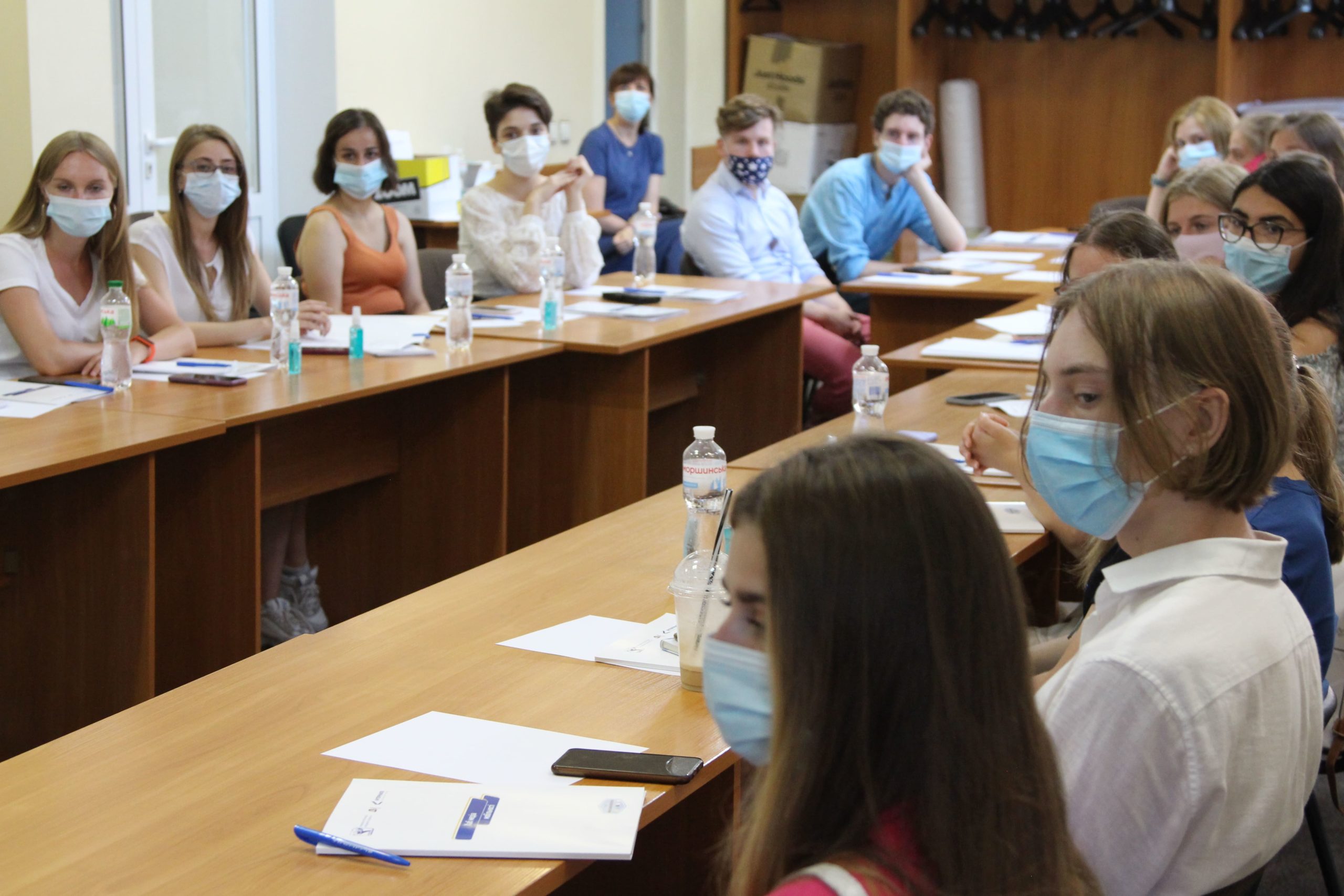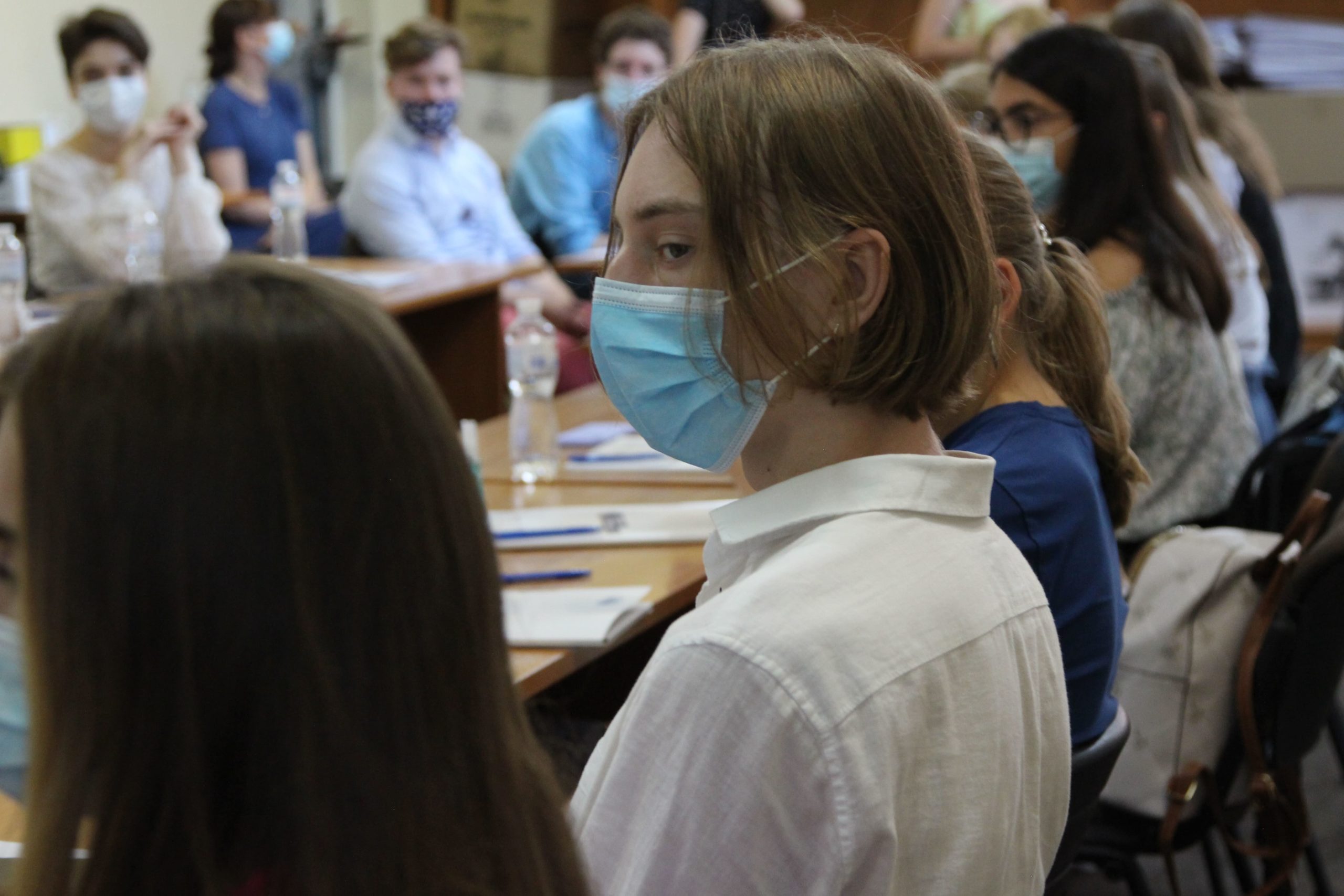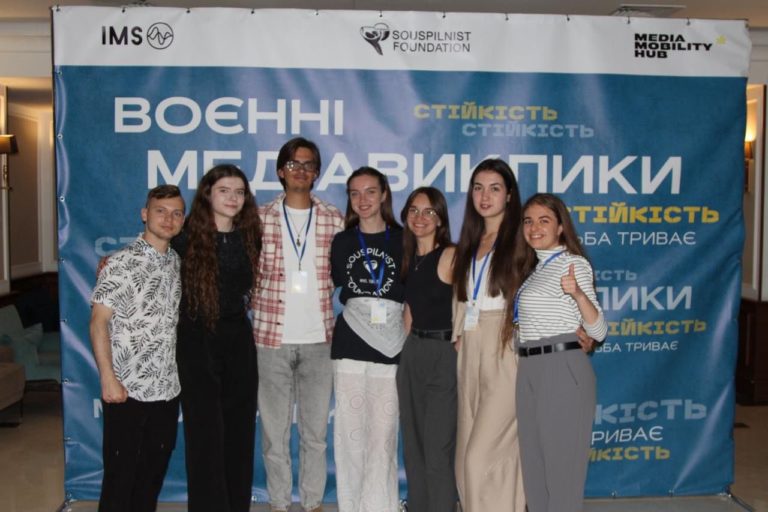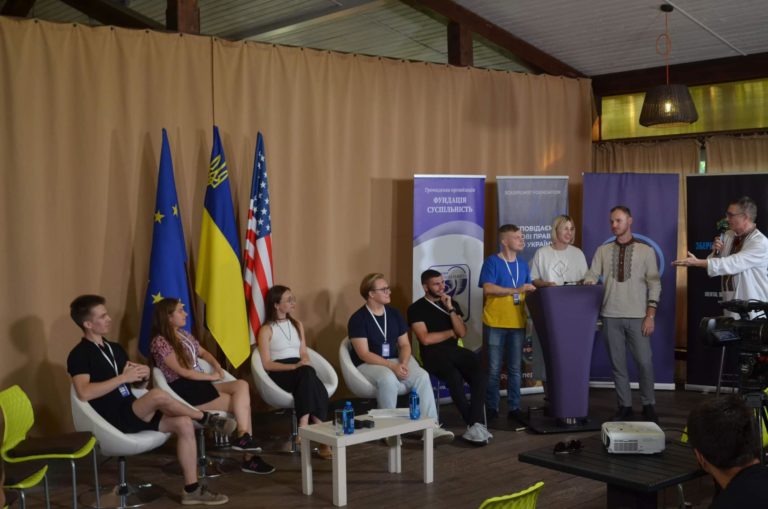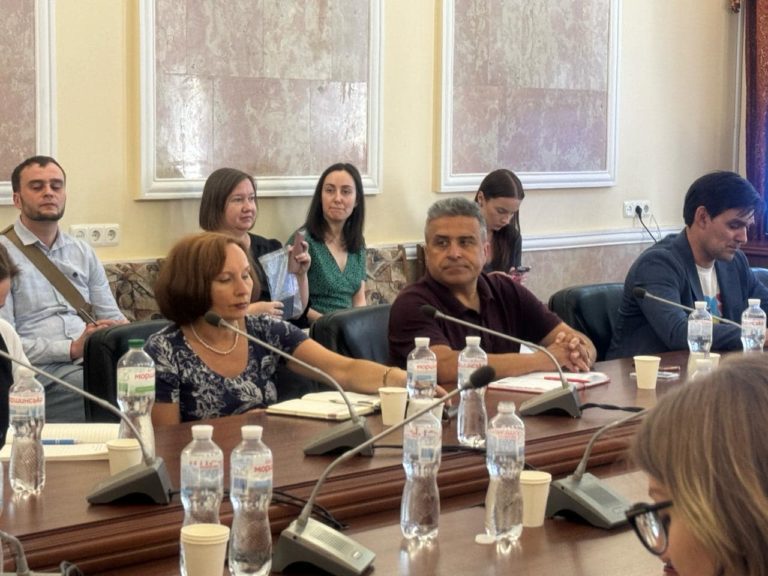On August 11, the twentieth and special internship session started as part of the Media Mobility Hub project.
Twenty-six graduating students of bachelor’s and master’s programs of journalism schools across the country – Odesa, Mariupol, Kremenchuk, Vinnytisa, Kherson – came to Kyiv to do their 15-day internship at the leading media newsrooms.
The event started with a media lunch, “How journalists should stand up for their professional rights?”. Dmytro Tuzov, NV Radio host, and the participants in the previous Media Mobility sessions Viktor Diachenko, UA:PBC host, Mariia Pysarenko, journalist at Channel 5, and Oksana Dumska, journalist at Radio Liberty shared their thoughts and experiences with the project participants.
The media experts spoke about how journalists should respond to pressure from top management and learn how to talk to editors, how to decline to do paid journalism work/”jeans”, how to find an alternative audience, and in what way editorial charters and media trade unions can be helpful.
It is important that journalists realize that they are working for their audience, not for media owners.
“We should move away from perceiving the owner as a person whose whims you have to follow and whose interests you must take into account when talking about journalistic material,” noted Oksana Dumska.
“It’s likely that you won’t be asked to write paid-for pieces at once, but your boundaries will be moved a bit at a time: this has to be highlighted here and this has to be removed. And if you ask questions and do it your way, it won’t be fine with the management and it’ll be easier to give the material to someone else,” added Mariia Pysarenko.
Under such conditions, the management is likely to apply pressure and you’re likely to lose your job, but it’s also possible to uphold the standards of the profession.
One of the instruments is to proceed with setting up mechanisms of self- and co-regulation in the media sphere. This includes establishing associations within the team and creating editorial charters, according to which the owners/advertisers won’t be entitled to interfere with the media’s editorial policy.
Another important aspect is the engagement of media professionals with the lawmaking processes: knowledge of existing laws (rights and obligations), tracking and initiating changes in the media laws.
The media lunch participants noted that it is possible to assert your rights but not in all media. Specifically, this concerns pro-Russian media where the task becomes even more complicated because, in essence, such printed media/channels are not oriented towards covering truthful and comprehensive information.
Therefore, another important issue discussed at the media lunch was how to create quality journalism while competing with oligarchic/pro-Russian media.
Mariia Pysarenko noted that this issue can be resolved with the increase in the proportion of media outlets that actually become a media business:
“I think we should move in the direction of seeking new media formats, like educating consumers in the context of paying for the product. What we’re doing, writing, filming is an intellectual product that cannot be free of charge.”
However, according to Oksana Dumska, besides understanding the importance of developing media business, another issue arises, namely the readers’ low paying capacity and lack of understanding of what to pay for when information is provided free of charge at several oligarchic channels.
Among the options available in Ukraine for the development of quality media business, the participants named providing comprehensive information, creating a new media trade union, and, possibly, so-called “white lists” of independent Ukrainian journalists.
“Everything that you do is stored digitally and in people’s heads. There should definitely be no “black lists” of media workers because we have no right to “chase people off” but we can create lists of those performing high-quality work,” added Viktor Diachenko.
After getting to know each other and the media lunch, the Hub participants went to do internships in their newsrooms, including at Radio Liberty, Liga, UA:PBC, the Village, NV Radio, Hromadske Radio, etc.
